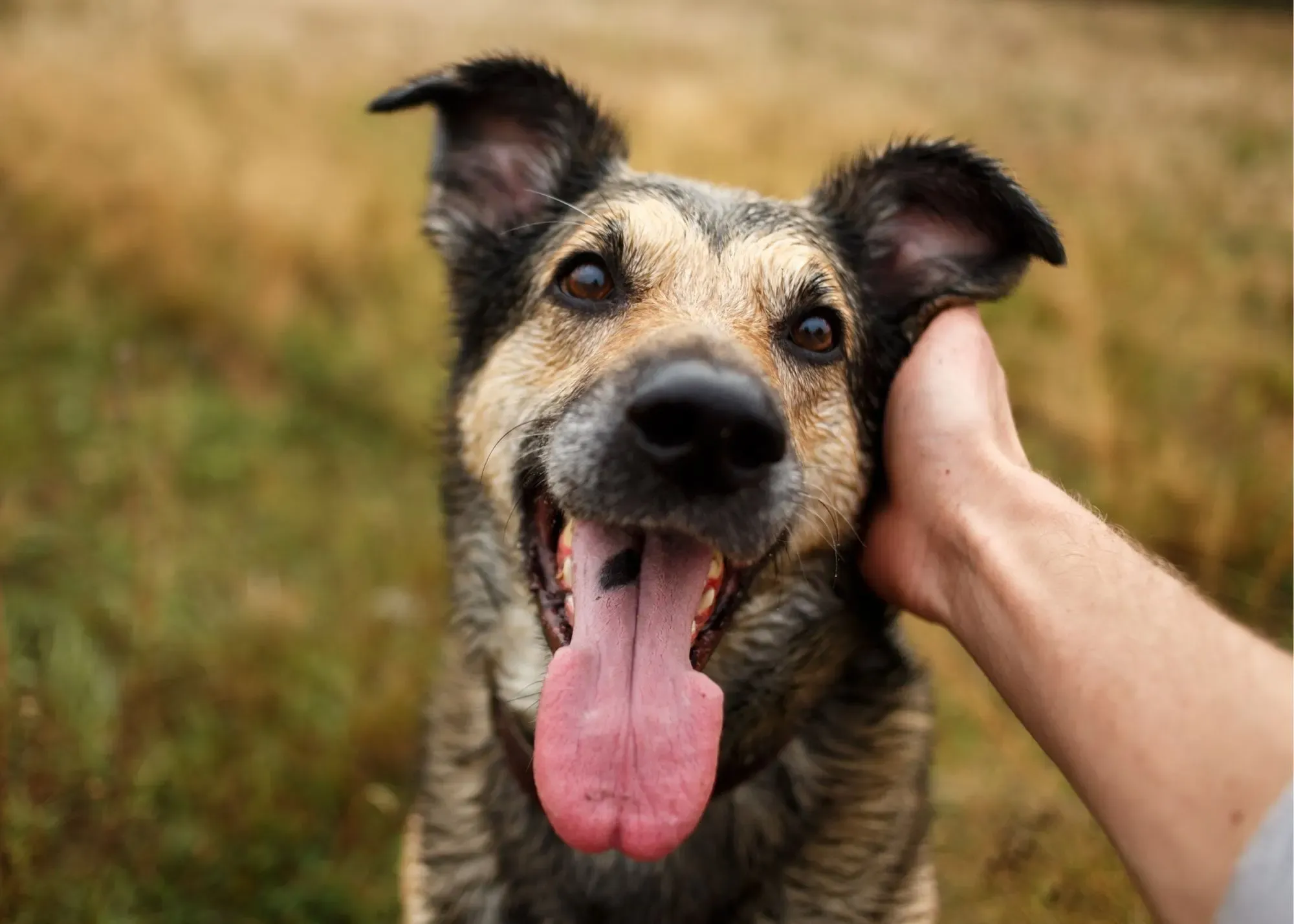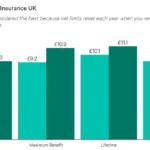Table of Contents
ToggleIs Diarrhea a pre existing condition pet insurance -
Diarrhea is a common condition in pets that may require veterinary care, and many pet owners wonder whether it is considered a pre-existing condition by pet insurance companies. Pet insurance can be a helpful tool in managing the costs of unexpected medical expenses for pets, but coverage for pre-existing conditions can be limited or excluded altogether. In this article, we will explore whether Diarrhea is a pre-existing condition in pet insurance and what pet owners should know about it when seeking coverage for their furry friends.
Understanding Pre-existing Conditions in Pet Insurance
Pet insurance is a valuable tool that can provide financial protection for unexpected veterinary expenses. However, pre-existing conditions are an important factor to consider when purchasing pet insurance. It is essential for pet owners to understand what pre-existing conditions are and how they can affect coverage.
Pre-existing conditions are any illnesses, injuries, or conditions that your pet has experienced or displayed symptoms of before enrolling in a pet insurance policy. This means that if your pet has been diagnosed with a medical condition before obtaining insurance coverage, your policy may not cover the condition.
Each pet insurance provider may have a specific definition of what constitutes a pre-existing condition. Still, generally, any situation that has shown symptoms or has been diagnosed before the policy start date will be considered pre-existing.
It is important to note that if a pre-existing condition is not covered under your policy, it does not necessarily mean your pet will not be able to receive treatment. You will still be able to seek veterinary care for your pet; however, your insurance policy will not cover the cost of treatment for the pre-existing condition.
To avoid any surprises or misunderstandings, it is essential to thoroughly read and understand your pet insurance policy’s terms and conditions. Be sure to ask your insurance provider any questions you may have and disclose any pre-existing conditions during the application process. By being upfront and honest about your pet’s health history, you can obtain the best possible coverage for your pet’s needs.
What is Diarrhea in Pets?
Frequent bowel movements and loose, watery stools characterize pets’ Diarrhea. It can occur in dogs and cats and may be acute or chronic. Acute Diarrhea is typically a short-term issue that lasts a few days and is usually caused by dietary indiscretion or a sudden change in diet. Chronic Diarrhea, on the other hand, lasts longer than two weeks and may indicate an underlying health condition such as inflammatory bowel disease, pancreatitis, or cancer.
Diarrhea can be mild or severe and may be accompanied by other symptoms such as vomiting, loss of appetite, lethargy, and dehydration. If left untreated, Diarrhea can lead to complications such as electrolyte imbalances, malnutrition, and organ failure.
Diarrhea in pets can be caused by a variety of factors, such as:
- Dietary indiscretion
- Sudden change in diet
- Food allergies or intolerances
- Bacterial, viral, or parasitic infections
- Inflammatory bowel disease
- Pancreatitis
- Cancer
- Medications
- Stress and anxiety
Identifying the underlying cause of Diarrhea in pets is essential to determine the appropriate treatment plan. In some cases, simple dietary modifications and supportive care may be sufficient; in others, more extensive diagnostic testing and treatment may be necessary.
How Pet Insurance Companies Define Pre-existing Conditions-
Regarding pet insurance, a pre-existing condition is any illness, injury, or medical condition your pet has exhibited symptoms of, received treatment for or been diagnosed with before your policy starts. It can also refer to any medical condition your pet shows signs of before your policy starts, even if a diagnosis has not been made.
Pet insurance companies define pre-existing conditions to protect themselves from covering the costs of treatment for a condition that a pet already has. This is because pet insurance is designed to provide coverage for unexpected illnesses and injuries that occur after the policy has been purchased, not for already present conditions.
Pet insurance companies will review your pet’s medical records to determine if a condition is pre-existing. They may also require a medical exam before issuing a policy to ensure your pet has no pre-existing conditions.
It’s important to note that the definition of a pre-existing condition can vary between pet insurance companies. Some companies may exclude coverage for a condition your pet has shown signs of, while others may only exclude coverage if your pet has received treatment or been diagnosed.
Ultimately, it’s essential to carefully review the terms and conditions of a pet insurance policy before purchasing to understand what is and isn’t covered, especially about pre-existing conditions.
Is Diarrhea Considered a Pre-existing Condition?
Generally, whether or not Diarrhea is considered a pre-existing condition by a pet insurance company depends on the specific circumstances surrounding the pet’s condition. If a pet has experienced Diarrhea in the past but has not received any veterinary care or treatment for it, the condition may not be considered pre-existing. However, if a pet has experienced Diarrhea and received veterinary care or treatment, the condition may be considered pre-existing.
Furthermore, if the pet has a chronic condition that causes recurring bouts of Diarrhea, the condition may be considered pre-existing. Pet insurance companies may not cover the costs of treating or managing the disease in this case.
Pet owners must carefully review the terms and conditions of their pet insurance policy to understand how pre-existing conditions are defined and treated. Some policies offer limited coverage for pre-existing conditions, while others exclude coverage altogether.
While Diarrhea may not always be considered a pre-existing condition, pet owners need to monitor their pets’ health and seek veterinary care if they are experiencing Diarrhea or other symptoms. By promptly addressing the underlying cause of Diarrhea, pet owners can help prevent more severe health problems and ensure their pets receive the care they need.
Factors That Determine Whether Diarrhea is a Pre-existing Condition-
Pet insurance companies consider several factors when determining whether Diarrhea in pets is a pre-existing condition.
- Timeframe: One of the main factors determining whether Diarrhea is a pre-existing condition is the timeframe in which it occurs. Most pet insurance companies consider a pre-existing condition to be any condition that existed before the policy’s effective date, which means that if your pet experiences Diarrhea before you purchase pet insurance, it may be considered a pre-existing condition. However, if your pet has not experienced Diarrhea for a certain amount of time before enrolling in pet insurance, it may not be considered a pre-existing condition.
- Underlying Causes: Another factor that can determine whether Diarrhea is considered a pre-existing condition is the underlying cause of the condition. If the Diarrhea is caused by an underlying medical condition that existed before the policy’s effective date, then it may be considered a pre-existing condition. However, if the Diarrhea is caused by a new condition or a dietary change, it may not be regarded as a pre-existing condition.
- Severity: The severity of the Diarrhea can also play a role in whether it is considered a pre-existing condition. If the Diarrhea is mild and easily treatable, it may not be regarded as a pre-existing condition. However, if the Diarrhea is severe and requires extensive treatment, it may be considered a pre-existing condition.
- Disclosure: Finally, pet owners are required to disclose any pre-existing conditions when enrolling in pet insurance. Failure to disclose a pre-existing condition can result in coverage denial and even policy cancellation.
It is important to understand that each pet insurance company has its policies and guidelines regarding pre-existing conditions, so it is important to review the terms and conditions of your policy to determine whether Diarrhea is considered a pre-existing condition.
Can You Get Coverage for Diarrhea if Your Pet Has a History of It?
Pet insurance companies consider several factors when determining whether Diarrhea in pets is a pre-existing condition.
- Timeframe: One of the main factors determining whether Diarrhea is a pre-existing condition is the timeframe in which it occurs. Most pet insurance companies consider a pre-existing condition to be any condition that existed before the policy’s effective date, which means that if your pet experiences Diarrhea before you purchase pet insurance, it may be considered a pre-existing condition. However, if your pet has not experienced Diarrhea for a certain amount of time before enrolling in pet insurance, it may not be considered a pre-existing condition.
- Underlying Causes: Another factor that can determine whether Diarrhea is considered a pre-existing condition is the underlying cause of the condition. If the Diarrhea is caused by an underlying medical condition that existed before the policy’s effective date, then it may be considered a pre-existing condition. However, if the Diarrhea is caused by a new condition or a dietary change, it may not be regarded as a pre-existing condition.
- Severity: The severity of the Diarrhea can also play a role in whether it is considered a pre-existing condition. If the Diarrhea is mild and easily treatable, it may not be regarded as a pre-existing condition. However, if the Diarrhea is severe and requires extensive treatment, it may be considered a pre-existing condition.
- Disclosure: Finally, pet owners are required to disclose any pre-existing conditions when enrolling in pet insurance. Failure to disclose a pre-existing condition can result in coverage denial and even policy cancellation.
It is important to understand that each pet insurance company has its policies and guidelines regarding pre-existing conditions, so it is important to review the terms and conditions of your policy to determine whether Diarrhea is considered a pre-existing condition.
Tips for Dealing with Diarrhea in Pets and Pet Insurance -
Dealing with Diarrhea in pets can be challenging, both for the pet owner and the pet insurance provider. Here are some tips to help you manage your pet’s Diarrhea and navigate the coverage options available:
- Understand your pet insurance policy: Before you sign up for pet insurance, it is important to carefully read and understand the policy. Some policies may exclude coverage for pre-existing conditions, while others may have waiting periods before coverage for certain conditions becomes effective. Ask questions about coverage for Diarrhea or any other pre-existing conditions.
- Keep detailed records: If your pet has a history of Diarrhea, it is important to keep detailed records of the frequency, severity, and duration of the episodes. This information will be helpful when you apply for pet insurance and can help to establish whether the condition is pre-existing.
- Talk to your veterinarian: If your pet has a history of Diarrhea, it is important to talk to your veterinarian about the possible causes and treatment options. Your veterinarian can also provide documentation of your pet’s medical history, which may be helpful when applying for pet insurance.
- Consider alternative coverage options: If your pet has a pre-existing condition such as Diarrhea that is not covered by traditional pet insurance, alternative coverage options are available, such as accident-only policies or pet health savings accounts. These options may not cover all of your pet’s healthcare needs, but can provide some financial support in the case of unexpected accidents or illnesses.
- Focus on prevention: While it may not be possible to prevent Diarrhea in pets completely, there are steps you can take to reduce the risk. This includes feeding your pet a high-quality diet, providing access to clean water, and maintaining a regular exercise routine. Regular wellness visits with your veterinarian can also help identify any underlying health conditions contributing to Diarrhea.
By understanding your pet insurance policy, keeping detailed records, talking to your veterinarian, considering alternative coverage options, and focusing on prevention, you can better manage your pet’s Diarrhea and make informed decisions about pet insurance coverage.
Conclusion:
In conclusion, Diarrhea may or may not be considered a pre-existing condition by pet insurance companies, depending on various factors such as the pet’s medical history and the timing of the condition. Suppose your pet has a history of Diarrhea. In that case, it is important to carefully review the policy terms and conditions before purchasing pet insurance to ensure you understand what is and is not covered. Additionally, suppose your pet develops Diarrhea while insured. In that case, it is important to seek veterinary care promptly and to document the condition with your insurer to ensure that any necessary treatment is covered. By staying informed and taking appropriate steps, you can help ensure that your pet stays healthy and that you have the coverage you need in case of unexpected illness or injury.















